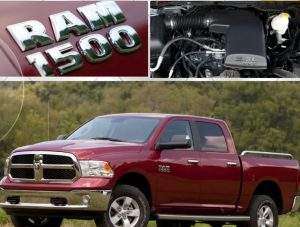Ford Raptor is one of the most popular high-performance pickup trucks on the market. It is designed to deliver outstanding off-road performance and exceptional driving experience.
As a proud owner of a Ford Raptor, you may wonder what type of gasoline it requires to run smoothly and efficiently.
In this guide, we will take a comprehensive look at the gasoline types that are compatible with the Ford Raptor and provide you with everything you need to know to keep your truck running at its best.
Recommended Gasoline Type for the Ford Raptor
The Ford Raptor is designed to run on three types of gasoline, namely regular unleaded gasoline, premium unleaded gasoline, and E85 ethanol flex fuel.
Each of these gasoline types has its own characteristics and advantages, and choosing the right one depends on various factors, including the engine type, driving conditions, and fuel economy.
Table of Contents
The Ford Raptor: An Overview
The Ford Raptor is a high-performance off-road pickup truck that features a powerful engine, advanced suspension system, and impressive towing capacity.

It is available in two body styles: SuperCab and SuperCrew, and two engine options: a 3.5-liter V6 EcoBoost and a 5.0-liter V8. The Ford Raptor is a gas-powered vehicle that requires gasoline to function.
Ford raptor gasoline type
Here’s a table of Ford Raptor models with their respective model year and gasoline type:
| Model (Engine Type) | Year | Gasoline Type |
|---|---|---|
| Raptor | 2022-2019 | Premium |
| Raptor | 2018-2010 | Regular |
Ford Raptor Gas Tank Size
Here’s a table of Ford Raptor models with their respective years, Gas Mileage and Gas tank Size:
| Model & Year | Gas Mileage (MPG) | Fuel Tank Capacity (Gallons) |
|---|---|---|
| Raptor 2022-2021 | 16 City / 22 Hwy | 36.0 |
| Raptor 2020-2017 | 15 City / 18 Hwy | 36.0 |
| Raptor 2014-2010 | 11 City / 16 Hwy | 36.0 |
The Importance of Using the Right Gasoline Type
Using the right gasoline type is crucial for the performance and longevity of your Ford Raptor’s engine. The gasoline type determines the combustion process, which affects the engine’s efficiency and power output. If you use the wrong gasoline type, it can cause premature engine wear and tear, decreased fuel efficiency, and potential damage to the engine.
Tips for Choosing and Using the Right Gasoline for Your Ford Raptor
To ensure optimal performance and engine longevity for your Ford Raptor, here are some tips for choosing and using the right gasoline:
- Check the Owner’s Manual
- Use Top-Tier Gasoline Brands
- Avoid Using Gasoline with Ethanol Content above 10%
Check the Owner’s Manual
Always consult your Ford Raptor’s owner’s manual for the recommended gasoline type for your engine. Using the wrong gasoline type can lead to engine damage and reduced performance.
Use Top-Tier Gasoline Brands
Using top-tier gasoline brands can help ensure that your Ford Raptor’s engine receives high-quality fuel and engine-cleaning additives that can help keep it running smoothly.
Avoid Using Gasoline with Ethanol Content above 10%
Gasoline with ethanol content above 10% can damage your Ford Raptor’s engine over time. Avoid using gasoline with higher ethanol content unless it is explicitly recommended for your engine.
Octane Ratings Explained
The octane rating serves as a crucial indicator of a fuel’s capacity to withstand the phenomenon of detonation, commonly referred to as “knocking” or “pinging,” that may occur during the combustion process.
Knocking occurs when the air-fuel mixture ignites before the spark plug fires, causing a shockwave that can damage the engine. A fuel’s propensity to resist knocking is directly proportional to its octane rating.
Hence, as the octane rating of a fuel increases, so does its ability to endure the phenomenon of knocking during the combustion process.
Benefits of Using the Right Gasoline Type for Your Ford Raptor
Using the right gasoline type for your Ford Raptor can provide several benefits, including improved performance, better fuel economy, and longer engine life.
- Improved Performance
- Better Fuel Economy
- Longer Engine Life
Improved Performance
Using the recommended gasoline type for your Ford Raptor’s engine can help improve its performance and prevent engine knock. This can lead to a smoother and more enjoyable driving experience, particularly when towing heavy loads or driving in challenging conditions.
Better Fuel Economy
Using the right gasoline type can also help improve your Ford Raptor’s fuel economy, which can save you money in the long run. Premium unleaded gasoline, in particular, can provide better fuel economy than regular unleaded gasoline, which may be beneficial if you frequently drive long distances.
Longer Engine Life
Using the right gasoline type can also help prolong your Ford Raptor’s engine life. Using gasoline with a lower octane rating than recommended can lead to engine knock, which can damage the engine over time. Using gasoline with a higher octane rating than recommended, however, can provide better engine protection and help prevent premature wear and tear.
How can I improve the gas mileage of my Ford Raptor?
To improve the gas mileage of your Ford Raptor, you can follow these tips:
- Drive at a moderate speed and avoid aggressive driving, such as sudden acceleration and hard braking.
- Keep the tires properly inflated to reduce friction and improve fuel efficiency.
- Remove any unnecessary weight from the truck, such as heavy cargo or accessories.
- Regularly maintain the truck, such as changing the oil, replacing air filters, and performing tune-ups.
- Plan your route to avoid heavy traffic and hilly terrain.
Does the Ford Raptor have any fuel-saving features?
Yes, the Ford Raptor comes with several fuel-saving features, such as:
- Auto Start-Stop: This feature automatically shuts off the engine when the truck is stopped, such as at a red light, to save fuel.
- EcoBoost Technology: The Ford Raptor’s EcoBoost technology uses direct fuel injection and turbocharging to improve fuel efficiency and power.
- Aerodynamic Design: The Ford Raptor’s aerodynamic design reduces drag and wind resistance, improving fuel efficiency.
Potential Risks of Using the Wrong Gasoline Type
Using the wrong gasoline type can have several potential risks for your Ford Raptor. It can cause engine knocking, reduced fuel efficiency, decreased power output, and engine damage.
Additionally, using gasoline with an octane rating lower than recommended can cause pre-ignition and damage to the engine.
Conclusion
Choosing the right gasoline type for your Ford Raptor is crucial for optimal performance, fuel economy, and engine longevity.
Always consult your owner’s manual and consider factors such as engine type, driving conditions, and fuel economy when selecting gasoline.
Using top-tier gasoline brands and storing gasoline properly can also help ensure that your Ford Raptor runs smoothly and efficiently.








